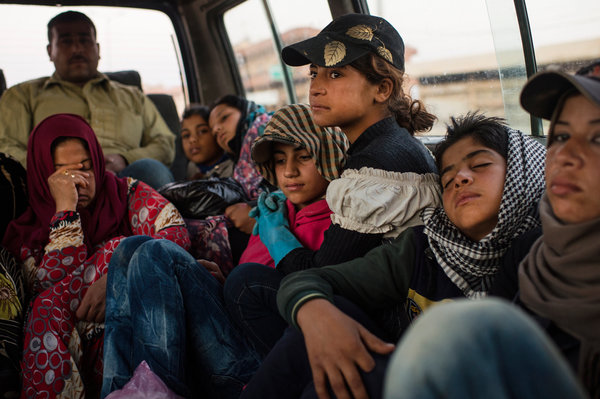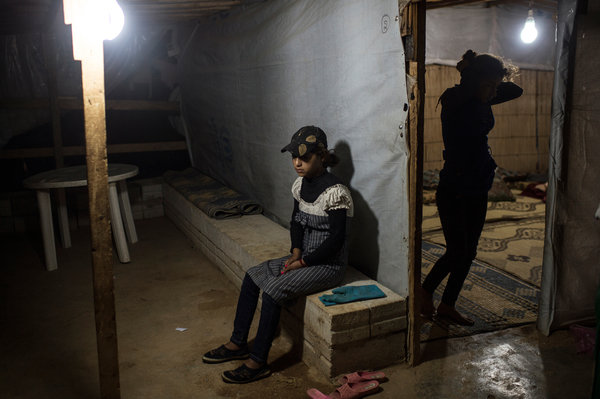This is a rather long article from the New York Times Magazine from earlier in November. It tells the story of one particular Syrian refugee and her family as they try to survive in a refugee camp in Lebanon. It is worth the read particularly as the conversation from our ‘Christian elected officials’ (snark intended) here in the United States focus on the need to support and take in large numbers of displaced Syrians or not. But here’s a glimpse of what the story holds for you:
Hana came from Mabrouka, a small town in northeast Syria. She last saw her home three years ago, when she was 9 — so long ago, in the life of a girl her age, that she had forgotten as much as she remembered. From the fields where she picked cucumbers, she could see the mountains that divide Lebanon from Syria; a long drive past those mountains was her childhood home in the country. It was almost certainly rubble now, a pile of rocks burying all they left behind: Hana’s favorite doll, dressed like a queen, with long hair down to her waist; the crystal glasses the family rarely used; the proper mattresses; the flush toilet. Towels. Closets. She loved her childhood home, but if she could build a dream house now, it would have big gates, at least three, and only her fingerprint would open them. The locks would recognize only her voice when she called out, “Open, Sesame!”

Lynsey Addario for The New York Times
It troubled Hana’s father, she knew, that her 5-year-old sister, Haifa, thought this was how they had always lived: in this makeshift settlement, in a tent of nylon and wood, alongside some 40 other tents, most of them inhabited by members of Hana’s extended family. In summer, they felt claustrophobic inside the airless homes; in winter, they worried about the roofs collapsing from the weight of the snow. Last winter, the children frequently scrambled up to clear the snow with their bare hands, waiting, all season long, for gloves that an aid agency had promised; by the time the gloves arrived, it was spring.
Haifa did not remember that they once had air conditioning, or a Chevy parked in front of the house, or childhoods of nothing but play and school. Why, Hana often wondered, had she not appreciated school back in Syria? In Mabrouka, Hana never had to miss school to work — she never worked at all, although sometimes, her dad would give his children some loose change if they brought him a cold drink.

Lynsey Addario for The New York Times
They left that life in the spring of 2012. Hana said she understood little about the political situation that kept her far from home. The protest movement started in Syria in 2011, with the uprising of citizens opposing President Bashar al-Assad’s oppressive government. By the following year, occupied with the uprising elsewhere, Assad’s security forces started withdrawing from rural pockets of Hasaka, the province where Hana’s family lived, and parts of the area quickly felt unsafe: Roaming armed gangs, whose loyalties were not always clear, were extorting farmers, like Hana’s father, for the right to farm their own land. Hana’s family began to hear about clashes between the Sunni Arab opposition and the government. Hana’s father, who had already started working in Lebanon to make extra money, told her mother it was time for them to leave. Hana wanted to bring all her toys, all her dolls, but her mother told her no, there would be toys where they were going. Hana and her siblings had visited their father in Lebanon before, and she did not realize she would probably never return to that house again.
These are the people who are fleeing Daesh in Syria…these are the people who are very likely to be killed if they return to their home…these are the people that ‘we’ don’t want in Wisconsin…think about that.


Recent Comments